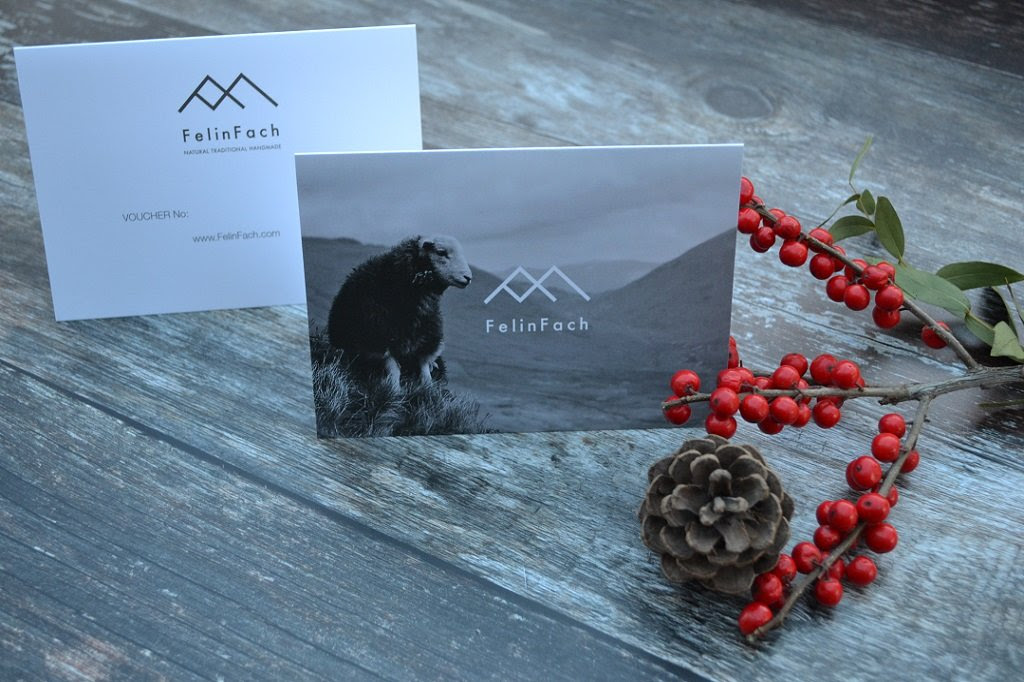Americana Pop Artist 'Chris Kelly' releases brand new single and album - Listen to 'Your Day Begins Again'
By Ceri Shaw, 2021-11-10

Cardiff Singer/Songwriter Chris Kelly announces his latest single 'Your Day Begins Again'
Released independently the single will be streaming everywhere on Friday 26th November.
Former Front-man of 90's Cardiff Band 'The Scooters' Chris Kelly has made quite a name for himself across Wales as a tour de force on the live music circuit. Honing his craft as an accomplished Singer/Songwriter, Chris Kelly has played extensively across all of South Wales and impressing many an audience with his unique brand of Acoustic Americana Pop.
Chris is available for interviews and sessions.
His Brand new album 'The Songs I Wrote Last Year' is available now via this link.
https://chriskelly.hearnow.com/the-songs-i-wrote-last-year
Social Media Links
https://twitter.com/chriskellywales?lang=en
https://www.instagram.com/chriskellywales/?hl=en-gb
https://www.facebook.com/chriskellywales/
REVIEW

Intended for children, this book would make an excellent Christmas stocking filler for any youngster who wants to be acquainted with the rich archive of traditional Welsh folk tales. Divided into three sections the book includes stories about dragons, mermaids and fairies ( three on each ). The titles are listed below. Whilst many of these tales will be familiar to people with a knowledge of Welsh mythology, they are all retold in Jude Johnson's inimitable style and humorous details and embellishments are inserted into the narrative here and there to make them more approachable and entertaining for a modern audience.
Some Welsh vocabulary is included ( although not enough to be off-putting) and there is a short glossary of relevant terms at the beginning of each story. As Jude explains:
"These stories were written and compiled mainly for an American reader who is unfamiliar with old Welsh folk tales. It was a deliberate decision to limit the amount of Welsh vocabulary used, but if you get anything out of this book, at least you can learn how to say, “Good Morning,” “Thank you,” and “Yes, certainly.”
There is also a short appendix which lists the three Welsh folk songs ( Calon Lan, Suo Gan and Ar Lan y Môr ) referred to in the tales, together with the lyrics in Welsh and English.
All in all we can unreservedly recommend this book for the younger members of your family who have not yet begun to explore their Welsh heritage. An introduction to the folk tales, language and traditional songs of Wales is not a bad start and all are featured in this delightful volume in such a way as to promote and encourage further exploration.
Dreigiau [Dragons]
Sian Bodiau & the Gwiber
Llyn Ar Afanc
The Dragons of Dinas Emrys
Môr-forynion [Mermaids]
Pergrin's Catch
Llyn y Fan Fach
Nefyn the Mermaid
Y Tylwyth Teg [Faeries]
The Faerie Bride
The House With the Front Door at the Back
Dewi Dal
INTERVIEW

Jude: S'mae, Ceri, and thanks so much for this opportunity to talk about my book, "Nine Tales From Wales: Dreigiau, Môr-forynion, & Y Tylwyth Teg [Dragons, Mermaids, & Faeries]". (We'll just call it "Nine Tales" for short.) It's a collection of stories primarily for American readers, or those who maybe aren't all that familiar with Welsh folklore. My main thought was to provide something for parents to read aloud before bedtime, short and fun. And what's better for a bedtime story than something with magical creatures?
I also wrote it for children to read to themselves as they feel more confident in their reading skills. I don't think there is a particular age group per se as reading level. My personal feeling is that books are doorways to adventure, and if a child feels ready to learn new words they should go for it and not be limited to their age group. Read to them every night and let them learn to love books and reading. I am absolutely gutted when I hear a someone say they hate reading or that reading is stupid. I can guarantee this: that is a person no one ever read aloud to as a child, and their life is so much poorer for it. Studies have shown that children who are encouraged to read - and especially to read fiction - are more empathetic and compassionate adults.
There are Welsh words in every story, which I list at the beginning with a rudimentary pronunciation guide for someone to sound them out. I deliberately limited the amount of Cymraeg I used so children - or adults for that matter - wouldn't be intimidated by all those consonants and mutations. As much as I love the language, you have to admit it's difficult. At the very least, someone will learn how to say, "Y Ddraig Goch" and "Bore da".
AmeriCymru: There are nine tales in this book - "three of Dragons, three of Mermaids, and three of Faeries" . Care to tell us which Dragon tales are featured?
Jude: I start with Siôn Bodiau and the Gwiber - or the story of how Dinbych / Denbigh got its name. Storyteller's license here: I made it a bit less bloodthirsty than the traditional version and tried to throw in more humor. Kids love fart jokes.
Llyn Ar Afanc has always stuck me as a weird story - I mean, Afanc does mean Beaver but the Monster in all the versions I've read is large and fierce and scary, much more like a water dragon or Nessie. I've never been scared of a beaver, no matter how big it might be. So in my telling, the Afanc is a combination - dragon in the front, Nessie in the back. Like a Ford assembled on the Monday after the Superbowl. Plus introducing Hu Gadarn and Yr Ychen Bannog might remind Americans of Paul Bunyan and Babe the Blue Ox just a little bit. (If they still tell that one in elementary schools. I know Disney did a version long long ago but I haven't seen it in years.)
Of course I had to include The Dragons of Dinas Emrys - most children have heard of Merlin the Magician but most American children have no clue he was Welsh. (Yes, he was - and I'll not hear a word of argument about it from the Cornish contingent, thank you very much. With a name like Myrddin Emrys? C'mon now.) Most American children have never seen the Welsh flag, so my hope is that once they read the story, they'll go looking it up just to see if it really does feature a dragon. And maybe keep looking up other things about a country with a flag that features a mythical beast.
AmeriCymru: What governed your selection process? Of the many folk tales from Wales, why these 9?
Jude: I wanted to attract American kids and their parents. Most of them know about dragons, Ariel the Mermaid, and Tinkerbell. Though I make it plain on the back cover and in the book description that these are not Disney creatures. They bite. They are tricksy. They might even be real if you know where to look and how to treat them with respect. So it was a choice of ready-made familiarity with fantastic creatures.
I also wanted to choose stories that weren't as well known to the majority of Americans. Some might have heard something about dragons and the Saxons but they probably couldn't tell you the particulars. Most people only know one mermaid story, and most of them don't know how it actually ended before Disney got hold of it. And generally, American children think fairies are happy and harmless.
So my selection process was it couldn't be so gory or heavy that I couldn't tell it differently. For instance, kidnapping a female to make her your wife is ever so 5th century, you know? But I stayed true to the gist and morals of the tales.
I didn't want to redo the most familiar tales in The Mabinogion, though I love them. There is a plethora to choose from there, and again, I was aiming for instant familiarity with the creatures I chose. The hope is that people will go looking for more. The folklore of Wales is rich and fascinating and has an undertone of great tragedy about it. Then again, reading the original Grimms' tales or knowing what is coming at the end of Camelot is a rather dark ride as well. But that's reality, isn't it? That's what these stories were told for from the start: how to deal with life, its twists, and the inevitable end.
AmeriCymru: What inspired this collection?
Jude: Despair. Seriously, I despair talking to people who seem so very proud of NOT READING. If I can get a few children and/or parents, aunts, uncles, etc. interested in these stories, maybe they will search for more. Maybe a spark will be struck and a fire of wanting to read more will catch.
It doesn't have to be paperback. Ebooks are fine, too. Whatever captures your fancy and takes you into another experience for a few moments or hours is what the joy of reading is all about.
These tales have been told and retold for centuries now, maybe even a millennium. But they are new to someone in every generation, and if that encourages some to keep reading keep going, keep learning, and keep retelling how a dragon still sleeps beneath Dinas Emrys, or mermaids warn of storms, or ticked off faeries can make your life miserable, then that's a golden ticket.
Plus to be honest, I hadn't felt the muse urging me to write since my last publication in 2016. I had just finished re-reading a collection of legends of North Wales and the idea clicked that I maybe could retell some of the lesser known tales in my own voice, and if I limited the number of stories and didn't get too carried away, I might be able to cobble a little book together that I could have ready in a month or two for the Tucson Celtic Festival and Scottish Highland Games [http://tucsoncelticfestival.org]. Then I learned the Welsh League of Arizona was not planning to be there; our ranks have been decimated over the past two years and no one seemed to have the opportunity to man the booth outdoors. Myn bran i, I couldn't let that happen. You can't have a gathering of Celts without Cymry! So long story short, it may just be me and one or two more, but we'll be there with Y Ddraig Goch flying high. And my books, wrth gwrs.
AmeriCymru: Where can readers buy this book online?
Jude: Right now, it is available online through Amazon - .com, UK, DE, FR, ES, IT, CA, and AU - in both paperback and ebook. You can find all of my books (fiction and nonfiction) on my Amazon Author page: https://www.amazon.com/Jude-Johnson which should also be available on the other country sites listed.
Wrth gwrs, if you're in Tucson, Arizona November 6 & 7, I'll be at the Celtic Festival with paperbacks ready to autograph.
Jude: I should be able to mail signed/personalized copies in the continental US for the holidays; sorry I can't do overseas at this time, the postage is ridiculous. You can find me on Facebook and message me here: https://www.facebook.com/JudeJohnsonAZ Or contact me through my website: http://jude-johnson.com
I'll check with the USPS on what postage and time allotments we'll be dealing with and have that information ready by November 10th for special orders; probably want to order to ship before December 5, I'm thinking. Everything is moving more slowly these days...
AmeriCymru: Any final message for the readers and members of AmeriCymru?
Jude: Diolch yn fawr iawn for keeping a warm welcome in the community for me. And for all the wonderful stories and legends you all have shared with me through the years. I hope I did you proud with "Nine Tales From Wales".
Pob hwyl!
King of Britons wins pretrial hearing against Bell Helicopter
AmeriCymru: Hi Llywelyn, and many thanks for agreeing to this interview. Can you please explain to our readers who you are and what you are doing?
Llywelyn: Shwmae Ceri a diolch am siarad efo fi. Yes, I am the true Brenin y Brythoniaid or King of the Britons, and I am working to restore our people to their rightful and lawful place on the island of Britannia as the legitimate British people, as our ancestors have claimed would happen for hundreds and hundreds of years now. I created a legal thesis which proved that England does not have a valid, true, and sovereign title to Britain or any lawful right to contract as ‘British’; and also, that succession to British royal titles is a dynastic (family) matter under the customary public international law and the laws which govern the titles. Which is to say that the Kingdoms of England and Scotland, their self-appointed “royal commissions”, and any other parties which are not qualified dynasts under the de jure British dynastic laws have no jurisdiction whatsoever over British royal titles, as the sovereignty of the British state makes the titles ultra vires any non-British dynast. Which is partly why they pretend to be British to this day.
I use the sword and the stone allegory to explain it to people. Only in my version, the sword is called ‘Sofraniaeth’ and the stone is called ‘Britannia’. The Anglo-Saxons, Normans, Angevins, Plantagenets, Stuarts, Lancasters, Yorks, Tudors (Beauforts), Hanovers, and Saxe-Coburg-Gotha-Windsor-Mountbattens can pull all they want on that sword, but only a true Briton has the ability to draw it out.
By claiming the office of Kingship I was able to prove that the diplomatic protest of our ancestors coupled with my actions have preserved our claim to sovereignty to this day. The office of Kingship is one of the three pillars of the true British state. By inheriting the office and titles of the true British Kings we are able to bring attention to the legitimate version of British history, which has been historically discredited by politics driven academics.
Scientific and archeological evidence has exonerated our ancestors and it has turned the English version of history on its head. The entire basis of English sovereignty is based upon ‘the Anglo-Saxon Conquest of Britain’ which was recently proven to be a pseudo-historical event. It had to be recently renamed the ‘Anglo-Saxon settlement of Britain’ by academia. Our ancestors codified into our laws that the English had come into their position via fraud. Both the British and the English historical records point to an event which has been called the ‘Night of the Long Knives’. This violation of international law and fraud is the genesis of the English state and their sole basis for sovereignty. A legitimate military conquest would have established a basis for a claim to title in the international law. However, a fraudulent military conquest invented to coverup a historical atrocity and regicide nulls the entire chain of title. The only reason they claim to be British today is because they know the British have the paramount claim to sovereign title in Britain, as a result of the Britons not being legally conquered. Conquest is a legal term. The legal requirements for the alleged Conquest of Britain were never satisfied. Y Gwir yn erbyn y Byd (The truth against the world).
AmeriCymru: You are saying that Queen Elizabeth doesn’t have a right to royal titles because she is not British according to the British laws? Is that right?
Llywelyn: I am saying that the U.K. has already acquiesced that they are not the legitimate British government. I am saying that the Windsors (Saxe-Coburg and Gotha) have been defrauded just like the rest of the world as well. The politicians of England and Scotland had them renounce their German royal titles under the guise of having the legitimate paramount claim to sovereignty. I suspect that England and Scotland have known for a great deal of time about the flaw with their claim to title. There are documented events in history where we can see the English and Scottish Kings attempting to repair their jactitation of title, or slander of title.
England and Scotland allege to have become ‘Great Britain’ in 1707. Yet anyone that knows true British history knows that Prydain Fawr (Great Britain/Britain/Britannia) was in existence long before 1707. The English claim to have conquered ‘Britain’ in the Anglo-Saxon Chronicles. Owain Glyndwr describes ‘Great Britain’ and a specific line of Kings to the King of Scotland in the 1400’s.
‘Most esteemed Lord and Royal cousin, may it please you and your royal excellence to know that Brutus, your most noble ancestor and mine, was originally the first crowned King to live in this kingdom of England, which used to be known as Great Britain . Brutus fathered three sons, namely Albanactus and Locrinus and Kamber; you are descended from the direct line of this Albanactus, while the descendants of this Kamber ruled as Kings until the time of Cadwaladr, who was the last crown King of my people, and from whose direct line I, your humble cousin, am descended. Since his death, however, my forebearers and all my people have been, as we still are, subjected and held in bondage by my and your mortal enemies, the Saxons (English)'.
'Owain Glynd ŵ r, a casebook', Livingston & Bollard (2013) Liverpool University Press, p. 478
It should be no surprise then that some hundred years later one Henry Richmond is claiming to descend from this same line with his faux pedigree. Historians today speculate that Henry Earl of Richmond, called Tudor much later in life, was more than likely an English Beaufort from the line of Edmund Beaufort.
“ By its very nature the evidence for Edmund Tudor’s parentage is less than conclusive, but such facts, as can be assembled, permit an agreeable possibility that Edmund ‘Tudor’ and Margaret Beaufort were first cousins and that the royal house of ‘Tudor’ sprang in fact from Beauforts on both sides. “
“Owen Tudor: Founding Father of the Tudor Dynasty” Terry Breverton (2017) Amberley Publishing
In “Tracing Your Aristocrat Ancestors” written in 2013, Anthony Adolph writes, “...the first Tudor King, Henry VII (d. 1509) had forced Welsh genealogist to forge him a pedigree connecting his male-line back to Rhodri Mawr” (Adolph, 2013). “Tracing Your Aristocrat Ancestors” received praise internationally, and the endorsement of the Journal of the Society of Genealogists.
Elizabeth Archibald a Professor of English Studies at Durham University, and Principal of St Cuthbert's Society, and David F. Johnson a Professor of English at Florida State University both also concur with Philip Schwyzer that the Tudors had invented their Welsh ancestry. In the text, “Arthurian Literature” it is written;
“ Philip Schwyzer has recently argued that the early Tudor kings played up their British (i.e. Welsh) roots for political advantage, nothing how Henry Tudor marketed himself as the mab darogan, or son of prophecy, on his march through Wales from Milford Haven to the Battle of Bosworth. In his History of the Kings of Britain, written in Latin in the early twelfth century, Geoffrey of Monmouth tells of how Cadwalladr, the last king of Britons, was forbidden by an angel to return to Britain from Rome. ‘for that God had willed the Britons should no longer reign in Britain before that time should come whereof Merlin had prophesied unto Arthur’. The angel asked the Britons patiently submit to Saxon rule, but prophesied their future deliverance by the mab darogan, a military leader who would free the Britons from their Saxon yoke, and who in the Welsh bardic tradition was identified as a direct descendant of Cadwalladr. It was no accident then, that Henry Tudor commissioned a genealogy which traced his family tree through Cadwalladr to the ‘ancient kings of Britain and the Prince of Wales’, nor was it coincidence that at Bosworth, and again at his coronation as St. Paul’s, Henry Tudor bore on his coat of arms the red dragon which the prophet Merlin (according to Geoffrey of Monmouth) identified with the Britons, and which in the History fights and eventually defeats the white dragon of the Saxon invaders. Henry Tudor was very much aware of the role of the mab darogan in Welsh political prophecy, and in his presentation as king he shrewdly exploited its symbolism”
Another hundred years later propagandist claim that the Scottish King is now the King of “Great Britain” as a result of his “Welsh blood”.
In Percy Enderbie’s 1661 "Cambria Triumphans", Enderbie a self-proclaimed Welshman and propaganda writer, presents a “Genealogy of Charles the 2nd, Monarch of Great Brittain, from the Welsh Blood,” which traces the Scottish king’s ancestry from Cadeth “King of South-wales” through several kings and princes of Wales to the marriage between Nest, “daughter of the Welsh King Griffith ap Lhewelyn, and Fleance, Son of Banquo”; the issue of this royal pair was Walter Stuart, first in the Stuart line.
Both the English and Scottish monarchs have played up Welsh roots because they know that the Welsh Kings in reality are the legal heirs to the Ancient British Kings, and it is only this line which has a lawful claim to sovereignty in Britain. This is why all of the different usurping dynasties have attempted to play up any distant Welsh connections or attempted to recreate British establishments and customs like Arthur’s legendary round table. Because these parties know that the Welsh are the true Britons.
Longshanks (Edward I) for instance attempted to make himself appear as the heir to King Arthur via his conquest over the Anglo-Saxons, and often relied on the Briton’s claim to sovereignty in Britannia as the basis for his claim to sovereignty over the Scottish.
“King Augusele carried Arthur’s sword, for the service of Scotland, which he owed to him. Since that time to the present the kings of Scotland have all been subject to the King of Britain.”
–Letter of King Edward I of England to Pope Boniface VIII
Rachealle Sanford, author of 2009 thesis “Edward I and the Appropriation of Arthurian Legend” states:
"The Arthurian writings of authors such as Chrétien de Troyes in the late twelfth century and the subsequent Vulgate Cycle pushed Arthur’s popularity to new heights on both the continent and in England, providing the monarchy, in the words of N. J. Higham, with “a source of political precedent and propaganda to be reformulated for present purposes of political status and aggrandizement.” This would not have been possible, however, if a monarch’s subjects—or his enemies—had not been familiar with the character and plot of Arthurian lore, which the work of Geoffrey of Monmouth and the romance writers assured. The international awareness of the elevated status granted to Arthur by Geoffrey of Monmouth (from warrior to king) allowed the British kings the opportunity to place their royal “ancestor” on the level of Charlemagne, the Christian Frankish Emperor of great renown, and increase their prestige among the other European monarchs. The conception of genealogy and land as an important marker of kinship, and thus of identity—which more fully developed in the Middle Ages—was also particularly important in making such claims, and several kings including Edward IV and Henry VII had their ancestry deliberately traced back to their Welsh roots. Henry VII, in particular, was able to make use of his Tudor ancestry and was promoted in Wales as “the Son of Prophecy,” the claimant to the “crown of Britain.” Even the name “Arthur” could have a political undercurrent when given to a child of the royal family. According to Constance Bouchard, aristocratic children from the eleventh century on were frequently named after relatives, family being a key aspect of medieval identity: “glorious ancestors were a key attribute of glorious aristocrats.” Thus, naming one’s child “Arthur” could easily be construed as a way for the English royalty to play upon the prestige of their supposed ancestor. It is telling that, according to royal genealogies, at least seven royal children were given the name Arthur from the twelfth century to the present. These include: Arthur of Brittany, nephew of Richard I and John; Arthur Plantagenet, illegitimate son of Edward VI; Arthur Tudor, son of Henry VII; Arthur, Duke of Rothway, son of James V; Arthur of Rothway, grandson of James V; Arthur, Duke of Connaught, son of Victoria; and Arthur of Connaught, grand-son of Victor"
Edward I and the Appropriation of Arthurian Legend, Rachealle Marie Sanford (2009) Western Kentucky University, A Capstone Experience/Thesis Submitted in partial fulfillment of the requirements of University Honors College at Western Kentucky University
AmeriCymru: Care to explain the background to this legal case for our readers?
Llywelyn: Without going into too many details about the case; I can tell you that part of the case stems from discrimination based on race/national origin and harassment based on race/national origin as a direct result of my British (Welsh) heritage. The details of the case should be public information.
My former employer Bell gave me the ultimatum to either stop administering the affairs of the de jure government in exile or face losing my career. Initially Bell offered to help me and move me to England, and I turned the position down for obvious reasons. Sometime after my diplomatic challenge to the UK with our own passport, Bell changed their position and then gave me 24 hours to chose between my ancestry, heritage, and birth right or the career that I had worked to build. I was working as representative for Bell on the V-22 Osprey program, and I was making a handsome salary. I have had a long history with that aircraft, and I was fortunate to have played a small role in the early days. I knew when I took up this fight for our people that I would face great resistance and opposition. The decision to continue fighting for our people rather than quit at the first sign of resistance was one easily made. I didn’t know then how I would provide for my family, but I knew that I would be able to figure it out in time.
AmeriCymru: And what do you do now for income? How have you been able to provide for your family now that you are no longer employed by Bell?
Llywelyn: When I left Bell all I had was the money in my retirement account and a rental house I had purchased a few years before. We took everything we had, sold our house, and used the funds to invest in crypto currencies like Bitcoin, Ethereum, and about a dozen others. Today, I am a multi-millionaire, and my money works for me. I work for our movement full time. They tried to break us, and they only made our movement stronger.
AmeriCymru: Are you alleging that your dismissal was for political reasons connected with your stance on the subject of British/Welsh sovereignty, and the restoration of the true British state?
Llywelyn: Yes, I am. I was a good employee at Bell. Literally the number one employee at one point. I was saving them millions. Bell only had a problem with my performance after I refused to take down my social media and stop my political work. They weren’t happy with the fact that I was deliberately disobeying them and calling into question the sovereignty of their ‘customer’. They tried to make me bow down and I gave them the Welsh two finger salute.
AmeriCymru: To what extent do you suspect that the UK government was involved in your dismissal?
Llywelyn: I do find it odd that Bell tried to move me to England because it would have gone against their own policies since I was already on an international assignment in Japan at the time. I also find the timing of their issues with my political works to be interesting. It was only after the passport challenge that Bell had an issue with me. The UK was unable to arrest me during the passport challenge because I had not broken any laws. They knew that criminal charges against me would have led to me challenging their English jurisdiction and claim to British sovereignty. My DNA can be presented as verification of my identity in any jurisdiction. DNA has been used modernly to resolve disputes regarding the inheritance of noble titles and dynastic rights, as these are family rights and follow the laws of blood (jus sanguinis) in order to qualify as a legitimate dynast or heir. My blood proves that I come from the legitimate line of British Kings.
The only thing they could do was exile me so that I could not meet with my supporters in Cymru. Later they used BBC Cymru to make some propaganda about an American claiming to be the King of Wales. We already know that the “U.K.” uses psychological warfare on all people in Britain to maintain the status quo with their 77 th Brigade. It will not surprise me at all if the U.K. becomes implicated in having anything to do with these matters.
AmeriCymru: The Defendant in this case has submitted a 'demurrer'. What is a demurrer and what are the arguments in this particular document?
Llywelyn: Yes, Bell submitted a demurrer. A demurrer is a type of objection. They were trying to get the court to throw out a charge against them. The California Labour codes 1101 & 1102 protects the rights of employees to seek political office. Bell was trying to state that my actions as “His Royal Highness Prince Llywelyn, the lawful King of Britons,” and “Administering the affairs of the exiled Welsh government” were not a “traditional political activity” and that they should not be protected by the California law because they are “international activities” and would more so fall under the international law.
The judge has already issued a decision on their demurrer, and he overruled Bell. He stated in the court documents “ sufficient facts have been pled showing a violation of Labor Code Section 1102 ”, and this is because Bell had threatened to terminate me because of my political actions, which are a protected activity not only under the California labor codes, but in my mind also the U.S. Constitution. As the U.S. Congress did not ratify the amendment that would have made it unlawful for Americans to inherit foreign titles of royalty and nobility. The proposed Constitutional amendment currently pending since 1810, would revoke the citizenship of any person who accepts a foreign title of nobility. However, this Amendment has not yet been ratified by the required majority of the states. A proposed amendment becomes part of the Constitution as soon as it is ratified by three-fourths of the States (38 of 50 States). Therefore, at the moment there is nothing which prohibits an American from receiving titles of nobility from other countries, or from claiming and inheriting foreign titles as a birth right.
Americans are able to join organisations such as Sons of Union Veterans of the Civil War (SUVCW), which was charted by the U.S. Congress, and which membership is based solely on ancestry. How then would it be fair for the same Congress to state that I cannot enjoy the incorporeal hereditament rights which go with my own ancestry? I should not be barred from enjoying the rights which go with my ancestry simply because heads of states friendly to the United States have long pretended that my ancestry was their own; or simply because my ancestry comes with a legal and royal title.
My DNA has been public for several years. It demonstrates that I descend on a direct male line from the same line of British Kings that the English and Scottish Kings have long pretended to descend from. This makes me a legitimate British dynast, capable of legally claiming to be the heir to the true British Kings, according to the dynastic laws that govern the titles, and under the customary public international law. Whereas, parties like the Windsors are legally label “usurpers” under the international law because they do not have the required blood to be a British dynast.
The legal doctrine of CUI LICET QUOD MAJUS, NON, DEBET QUOD MINUS EST NON LICERC ( He who is allowed to do the greater ought not to be prohibited from doing the less. He who has authority to do the more important act ought not to be debarred from doing what is of less Importance. 4 Coke, 23) outlines that I should be allowed to enjoy both sets of rights. But in reality, I have lost some rights as a result of my political actions. I no longer take part in American elections because this would be a violation of the customary international law, as States cannot interfere with other States.
AmeriCymru: Where do things go from here? With the legal case and with the U.K.? What is your end goal?
Llywelyn: My end goal is supreme excellence. That is, to be successful in restoring our people to their rightful place in the world without any fighting. Glyndwr was widely successful with violence, and many assumed that I took up the office of kingship to exercise the legal powers of a Monarch by raising an army against the alleged U.K. However, Glyndwr regained our recognition of sovereignty from the Kingdoms of France, Scotland, and Castile after approximately 117 years of occupation via the powers of statehood and diplomacy, not just the violence. Glyndwr did not have the information and technology available to him that we have today. He flew Y Ddraig Aur on the battlefield symbolic of his subscription to the beliefs of our ancestors. The belief that one day a Briton would be King of Britain again. Today, we have the technology and evidence to prove the claims and the chain of title of our ancestors. My goal is the same that is has been since the beginning. To correct the injustices and the atrocities and to restore things to the way they ought to be, if not for the unlawful interference of others.
AmeriCymru: But where does that put the Windsors? Or Scotland for instance?
Llywelyn: The King is a source of law and must dispense justice. The English and Scottish people today are not the same people that were fighting against our ancestors. I do not hold any ill will towards any person which unknowingly took part in the unlawful actions that have been historically carried on to present day. My dream is for a legitimate union. Independent, free, and sovereign nations, united in history, friendship, defense, and trade. If these revelations of the past have exposed anything I believe that it is that it is time for us to find a better way.
AmeriCymru: How would this affect BREXIT?
Llywelyn: I believe that we should go back to the European Union and explain that recent discoveries have had us investigate our history, and that has shown us that Britain has always had connections with Europe. Britain should be seated near Europe at the table of the family of nations as she always has been. These food and fuel shortages should be an alarm for anyone living in Britain to wake up and find a better way. The people that they believe are looking after them do not have their best interest in mind. These Etonians only care about lining their own pockets and retaining the powers and positions they have unlawfully come into.
AmeriCymru: Any final message for the readers and members of AmeriCymru?
Llywelyn: Ydw, diolch am dy amser. Thank you so much for your support over these last few years. Your messages and your applications to join this movement keep me going. Your support has meant the world to me. I promise that I will never quit on you. My family will never quit on you. We will be restored to our lawful place in the world once again.

|
Cardiff riotous rock 'n' rollers Pigeon Wigs have released their stomping debut single Near The Knuckle today.
By Ceri Shaw, 2021-10-15

Pigeon Wigs are band newly sprung from Cardiff’s most fertile soil. Formed from the writing partnership of Harry Franklin-Williams & Louis Jugessur, the band's music ranges from the bombastic and unrelenting, to the sombre and fragile.
Indulging in whatever genre best suits their aim, they continue to maintain the soon to be unmistakable sound that one can only describe as Pigeon Wigs.
Released today (Wednesday 6th October), Near The Knuckle is a blindingly rambunctious debut single full of hearty guitar riffs, sleek vocals coupled with colossal drums and an instant sing-along chorus.
"Near the Knuckle embraces reckless abandon" explains Cardiff born lead singer and front-man Harry. "It's the urgent frustration of knowing you're with the wrong person and the desperate compulsion to not be alone dressed up in doozie rocker.".
Pigeon Wigs recently announced that they've joined the Clwb Music family. They're already gearing up for their next release and if Near The Knuckle is anything to go by, there's just no stopping this relentless 6-piece.

Cardiff pop powerhouse Alice Low has today released her stunning second single Cry-Baby.
By Ceri Shaw, 2021-10-15

Remarkably, this morning, Cry-Baby already received it's debut radio spin on BBC Radio 6 Music from Huw Stephens (29.09.2021).
A song full of pop melodies and danceable hooks, Alice Low is making a habit of writing uplifting, fun and left-field music while highlighting important issues. The accompanying video also showcases Alice's wry humour and visual identity.
Alice explains; "Cry-Baby was the last recording I made before growing breasts. I was afraid, not only of the changes I was about to face, but also of the loss of self and the grief of my manhood. As a man I had subconsciously exuded my privilege my whole life, and it wasn’t until I was about to lose that privilege that I began to acknowledge it. Those fears manifest so clearly in Cry-Baby. The closer I got towards comfort in my womanhood, the further I got from feeling comfortable in the supermarket, or the pub, or walking home at night." .
Alice's transition gave her the space to hone her talents as a musician and as a producer. "My work took on a new singularity, something more dynamic, more engaging, and totally mine" she says.
"After writing Cry-Baby and beginning further transition treatment, suddenly I was taking a greater sense of value from how I attractive I felt, and how much attention I was getting, and that made me question how I had viewed women in the past, and whether I was just projecting my own misogyny onto myself. As you can imagine, being the recipient of your own male gaze is some Freudian nightmare energy, even if it is at times fun and sexy."
With Alice's debut Ladydaddy receiving high praise from both Huw Stephens and Tom Robinson on BBC Radio 6 Music, and Cry-Baby already getting its BBC Radio 6 Music debut within just a few hours of it's release, it's no surprise that Alice is about propel to the top of everyone's 'must see' list.

"There's so much to love about that!"
- Adam Walton, BBC Introducing
"The harmonies are sharp and the energy levels are through the roof"
- Frank Henessy, BBC Radio Wales
"Excellent vocal harmonies, It's an enjoyable journey from start to finish"
- The Indy Review
"Lights is an absolutely gorgeous track!"
- The Sounds Won't Stop
Swansea Folk-pop aficionados ‘Lost Tuesday Society’ have announced a brand new album entitled ‘Bee Skin Rug’ which will be released independently on Friday 22nd of October.
‘Lights’ is the feature track to be taken from the ‘Bee Skin Rug’ album and this terrific uplifting signature tune and has been very well received. Harmony flooded and certainly becoming a real automatic-earworm, ‘Lights’ excels and shows off ‘Lost Tuesday Society’s new material and future sound intentions to a T, and accompanied with the production of acclaimed long-time friend and producer Joe Gibb, LTS are kitted out to establish themselves as a tour de force in their respected genres.
Lost Tuesday Society are Jay Browning (bass) Alfie Scheinman (guitar, flute, vocals) Sarah Birch (guitar, vocals) Darran Browning (guitar, vocals) Simon Jones (drums) Kate Ronconi (violin, vocals)
Lost Tuesday Society are a 6 piece band who have collectively come from a variety of differing musical backgrounds and therefore bring with them a range of personal influences; from traditional and alternative folk, grunge and shoe-gaze, funk, psychedelia and rock.
The result is a unique blend of music with intricate compositions, strong hooks and melody lines combining in a huge dynamic sound that has people up on their feet.
With four vocalists (Sarah, Kate, Darran and Alfie) in the band the harmonies are interesting, beautiful and an important element to the Lost Tuesday Society sound. With a heavier back line and driving rhythm section ( Jay and Simon) and two accomplished guitarists (in Alfie and Darran) the new material presented today has a maturity and edge which is beautifully enhanced by weaving strings (Kate),flute(Alfie) and melodica (Sarah).
HISTORICALLY
In around 2011 Darran and Sarah formed the first murmurings of Lost Tuesday Society with a different line up of excellent musicians joining and contributing over a period of years. ( Darren Beynon, Ian Coote, Julian Clark and Simon Parsons) Alfie Scheinman joined around the time of writing and recording the first self titled album and adding an extra layer of flute, guitar, vocals and songwriting that gave the album it’s own uniqueness. The first album was very well received being more in the style of an alternative folk album with elements of blues and rock thrown in. However the LTS ‘sound’ was well and truly born from this.
In 2019 The final song on this debut album ‘Universe’ was used in a Crime drama in Russia called Maxop. The result was a large following in that part of the world, many Russian messages ( google translated) and shazam and you tube viewings going through the roof.
A few years after the first album, members Simon Jones, Jay Browning and Kate Ronconi joined Lost Tuesday Society and the final lineup was complete; With Kate's incredible violin playing and a much heavier, technical back line (Jay and Simon); the sound has progressed to another level again. The band write collaboratively together as well as individually yet all 6 members contribute to the arrangements and over all flavour of the tracks. With this the second album “Bee Skin Rug’; many of theses songs have already been gigged live far and wide.
LTS have secured their status as festival stalwarts playing Green Man, Shambala and Kendell Calling as well as regular headliners at The Swansea Fringe Festival. To date, the band have graced the stage with the likes of Paolo Nutini, Lianne LaHavas, Pete Doherty, Sister Sledge, Alabama 3, Moulettes, Big Sir, The Real Thing and Mica Paris, Fairport Convention to name but a few. They have played the Acoustic Festival of Britain, Nozstock, Big Cwtch, Kaya Festival and in venues all over south Wales as well as Cardiff, Devon and The Paimpol Festival in Brittany.
Bee Skin Rug is the new album release from Lost Tuesday Society and this album is a far cry from the gentle musings of the first one.
‘Devil in a B and B’ was the first single from the album. Accompanied by the usual self made video. This one was filmed in The Elysium Gallery in Swansea with a ‘talent show’ theme and a queue of volunteers. It is a small taster of the albums direction and is perhaps the most playful and surreal.
The next single to be released is called ‘Lights’ and is perhaps the most fitting song to be released in these strange times. It is up beat and harmony driven (“Haven’t seen light in a while”) and endlessly positive. Something we all need at the moment.
Intertwining violin, flute and guitar with the occasional synth thrown in gives all the music a cinematic, atmospheric landscape; with a darker more foreboding edge in songs like DMT and Propane. ‘Knowing what you are’ and ‘Spaniard’ fuse elements of almost jazz with what can only really be described as Russian Choir-esque.
I suppose giving pertinence to describe LTS as having psychedelic leanings. Subtleties and dynamics play a part in the first track ‘Bee Skin Rug’ where after the huge introduction vocals are simple and delicate leading seamlessly into the second song (the afore mentioned Knowing what you are).
While it sounds on paper like this album shouldn’t work it’s actually very cleverly composed, well played, well sung beautiful music. Often times the lead vocal being taken by different members of the band however still maintaining its very distinct sound. You know you are listening to Lost Tuesday Society!
Recorded and produced by Joe Gibb (David Bowie, The Kinks, Catatonia, Leftfield, Moulettes) at Mwnci Studios (Joe also produced the first self titled album). Joe is basically the 7th band member; knowing the sound and songwriting so well and understanding it. The whole bands efforts and Joe Gibb's production and input has been a huge part of the writing process and the band are hugely proud and excited about people hearing this album.
www.losttuesdaysociety.com
Available for weddings, divorces, births and funerals.
Social Links & Websites
https://twitter.com/losttuesday?lang=en
https://www.instagram.com/losttuesdaysociety/?hl=en
https://www.facebook.com/ltslosttuesday/
https://losttuesdaysociety.bandcamp.com/
https://soundcloud.com/lost-tuesday-society
Ritual Cloak + Autumn Juvenile New 'A Human Being Is The Best Disguise' Album via Bubblewrap Collective
By Ceri Shaw, 2021-10-09
'A Human Being is the Best Disguise’ is a reworking of Ritual Cloak’s self-titled, largely instrumental debut release, except now with added lyrics and vocals by writer, comedian and spoken word performer Autumn Juvenile. The resultant hybrid takes the glacial electronica of the original album, before injecting it with a cocktail of dark narratives, observational detail and social commentary.
Autumn Juvenile describes the process:
“All lyrics are a mix of real-life lies, workplace gossip, online flirtations and (most unforgivably) pure imagination. They were written on stifling summer nights working in secure mental health units across Cardiff, in between rolling cigarettes for rapists. This is music you can smugly share on your social media; working class fictions for middle class listeners”
The album was recorded at Kings Road Studios, Cardiff, produced by Ritual Cloak and Autumn Juvenile and mastered by Charlie Francis. It also features vocals from Jemma Roper, as well as Ritual Cloak’s Daniel and Andrew. The cover photography is by Daniel Barnett.
Ritual Cloak is comprised of Daniel Barnett, formerly of the band Samoans, and drummer / producer Andrew Sanders. The duo met in 2013 after Daniel answered an ad for a guitarist to join the backing band for singer Jemma Roper. An instant kinship was struck, with both Daniel and Andrew embracing experimentation and a shared love of electronic music. After the split of Samoans in 2018, the pair began playing around with instrumental textures and piano-led ambient soundscapes, all resulting in their well-received self-titled debut in 2019. They followed this with their second album, ‘Divine Invasions’, released on Bubblewrap Records in 2021.














































